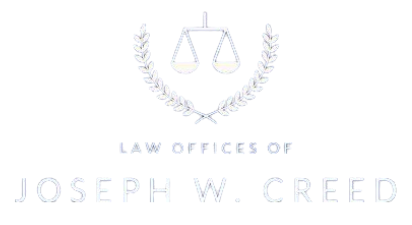What’s the Difference between Revocable and Irrevocable Trusts?
What’s The Difference Between Revocable And Irrevocable Trusts?
A trust is a type of account for your assets. Most commonly employed as an estate planning tool, it is governed by specific rules and agreements. A third party, called the trustee, oversees the account and manages or distributes the assets according to the rules you establish for the trust.
Typically, you place assets in a trust to distribute them to your beneficiaries. For example, you can create a trust for your heirs if they are still minors, with directions to distribute the assets to them when they reach adulthood.
Technically, you transfer ownership of the assets to the trust. However, you can retain some control over the account depending on the type of trust you choose.
These accounts fall into two categories: revocable and irrevocable trusts. Both types hold assets, and a trustee manages them. However, one vital difference exists: you can easily change one variety, while the other has fixed terms you cannot alter without court approval.
Here is a closer look at how to use revocable and irrevocable trusts in Bellevue, WA.
Why Should You Use Trusts?
Trusts are an estate planning tool. Why would you use them instead of simply writing a will?
With a trust, you can give the assets directly to the heir, meaning you avoid confusion when reading the will, and they are not subject to the probate process.
Unlike a will, a trust goes into effect as soon as it gets created. This feature could be useful if you become incapacitated but are still alive or cannot make decisions for yourself because of a medical condition, such as Alzheimer's.
Also, because trusts go directly to your heirs, they can be effective in avoiding estate taxes.
Finally, the assets in your estate are subject to taxes, and any outstanding taxes or debts get removed before the distribution of the remaining wealth. Furthermore, creditors cannot collect from assets contained in a trust. However, this protection is only available for irrevocable trusts.
What Are Revocable Trusts?
Revocable trusts are accounts for your wealth. A trustee manages the assets, and the benefactor establishes rules to govern the trust. If you are the benefactor, you can change this trust or cancel it at any time. In addition to altering the rules of the trust, you can add or withdraw assets, add or remove beneficiaries, or remove all the assets and close the trust.
These actions have only one requirement: you must be competent when making changes to the revocable trust. Typically, competence means having a rational and factual understanding of what you are doing.
Revocable trusts offer the flexibility to make changes during your lifetime. However, they become irrevocable when you pass away. After your death, the trust cannot change.
There is one significant disadvantage to revocable trusts: creditors can pursue the funds and assets in this type of account to cover outstanding debts you had at the time of death. If you want debt protection, you need to establish an irrevocable trust.
What Are Irrevocable Trusts?
Irrevocable trusts have the same features as revocable trusts. When you establish an account and deposit your assets, you transfer ownership to the trust. A trustee manages the assets according to your rules, and the beneficiaries access or receive the assets according to the rules you establish governing the trust.
The more important feature of irrevocable trusts is that they are extremely difficult to change once established. You can alter these trusts, but any changes require the approval of all named beneficiaries and the trustee. You can also go to court and try to get a judge to approve the changes. This typically requires presenting a legal argument about why the changes are necessary.
Irrevocable trusts have one significant advantage. Creditors cannot pursue the assets in these accounts as payment for outstanding debts, meaning all the wealth contained in these trusts goes to the beneficiaries.
The lack of flexibility is a drawback, so you must be certain about your beneficiaries and allocation of assets when establishing this type of trust.
Which Type Of Trust Is Best For Estate Planning In Bellevue, WA?
An estate planning attorney can review your needs and help you decide which type of trust is best for your situation.
If you want to retain control over your assets and estate, a revocable trust is a better option.
- If you plan to accumulate more assets for your estate, you can select a revocable trust.
- If you expect your family to grow with more children, grandchildren, or other dependents, a revocable trust makes adding more beneficiaries simple.
- If you do not have excessive debts, you may not need the protection of an irrevocable trust.
- If you do not have a high-value estate, you will not need the tax protections of an irrevocable trust. Currently, federal taxes only cover estates worth more than $12.9 million. If your estate is worth less than this threshold, you can enjoy the flexibility of a revocable trust without needing tax protections.
If you need specific protections against estate taxes or debt collectors, then an irrevocable trust is a better choice. In some cases, an irrevocable trust can reduce the value of your estate so that it falls below the federal threshold.
Irrevocable trusts are also a good option if you do not want the trust changed for any reason. You could have personal reasons for creating this type of trust.
Do You Need An Attorney To Establish A Trust In Bellevue, WA?
An estate planning attorney can help you select the correct trust for your needs and financial goals. They can also help you create the rules governing the disbursement of assets in the trust. For example, you may want to add requirements related to the age, education, or marital status of the beneficiaries. An attorney can help you choose the language to ensure these desires are met before the beneficiary can access the assets.
Contact our estate planning lawyers today if you need assistance establishing a trust.











